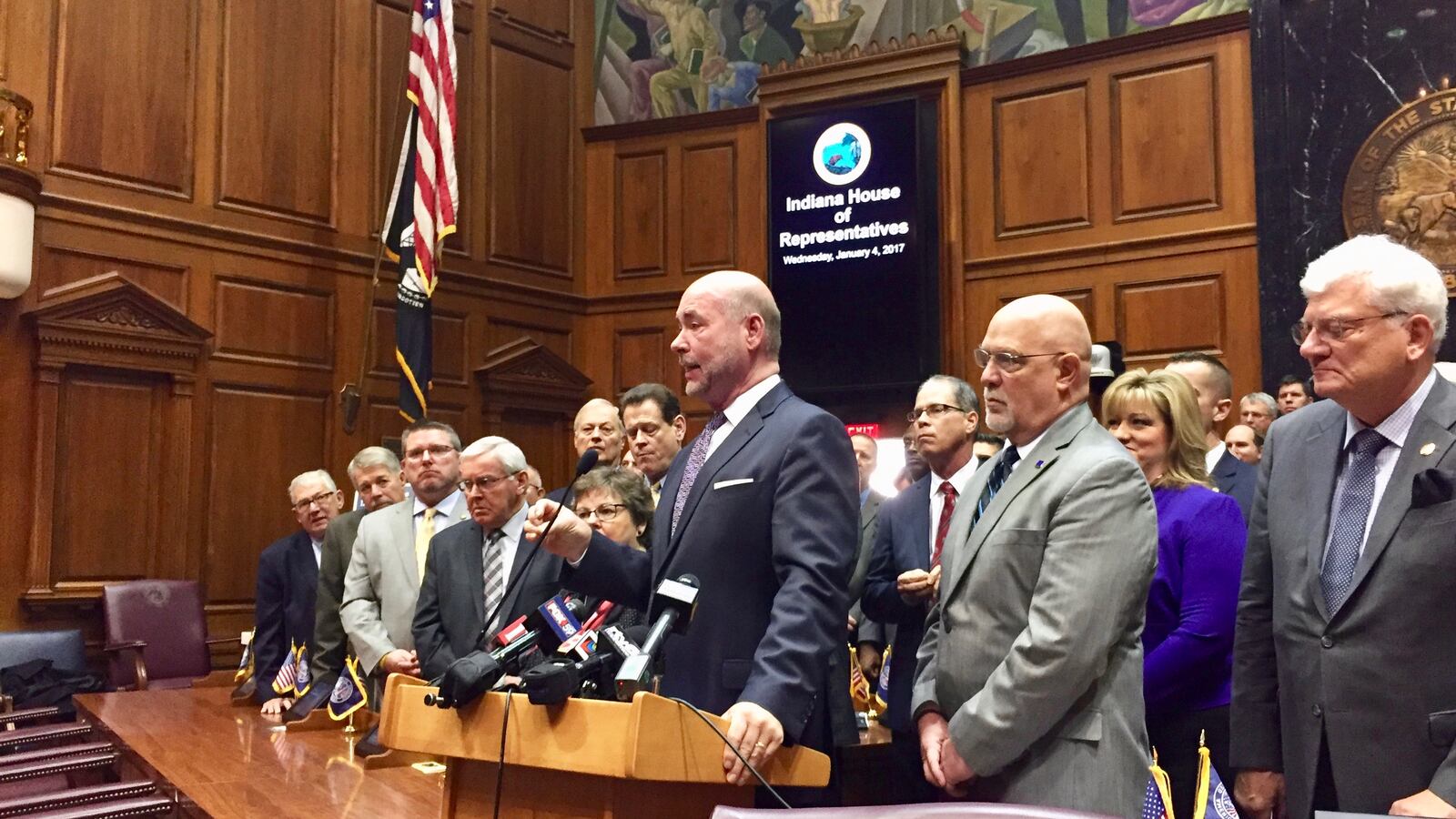In the first week of the 2017 legislative session, three education issues — school funding, preschool and teacher pay — are already getting attention from both sides of the aisle.
Bills will continue to be released over the next week, when testing and other education issues are expected to make an appearance.
School funding
House Republicans are proposing fundamental changes in how money is distributed to school districts.
Instead of funneling all money to school and district general funds, which restrict how the money is spent, it would also be distributed to other parts of their budgets. House Speaker Brian Bosma says this proposal is designed to give schools more decision making power in how they use state money.
The House will release a budget draft in the next month or so, which will offer more details about how this plan would work, and Gov.-Elect Eric Holcomb is expected to present his budget next week.
Rep. Scott Pelath, D-Michigan City, said he hopes traditional public schools’ funding isn’t compromised by growing enrollment in private and charter schools.
“There are communities throughout Indiana that are seeing their school systems asphyxiated by recent changes to state funding,” Pelath said. “I’d like to hear something about the 95 percent of school-age children that are in your traditional public schools.”
Preschool
Advocates had hoped 2017 would be a year of major expansion for the state’s $10 million preschool program, but it’s becoming clear that funding will likely fall short of their expectations.
The program has provided preschool support to about 1,600 kids in five counties, but demand has far exceeded supply.
Bosma said Wednesday that significant growth probably wouldn’t be possible in a year when state revenue is forecasted to be about $300 million short of earlier projections. He has suggested expanding preschool to perhaps 10 counties for $20 million.
For the most part, Indiana Republicans agree on growing the program conservatively. On Thursday, Holcomb announced his proposal to also double the current preschool funding amount to $20 million, but he suggested keeping it within the original five counties.
Senate Minority Leader Tim Lanane said he and his caucus have been disappointed in the modest proposals they’ve heard from Republicans.
“I can assure you there are communities around the state that have been working on this, investing in this, and know for their individual communities that this is a good thing,” Lanane said. “Far more than just 10 communities throughout the state.”
Teaching
After Republicans backed major changes to teacher pay in 2011 and 2013, legislative leaders are now saying they might need to reconsider some of them.
Just one week in, lawmakers have already proposed a number of bills dealing with teacher pay. The subject that has garnered considerable attention since news of teacher shortages sprung up in 2015.
Thursday, Bosma even acknowledged that a Republican-led effort passed in 2013 to give high-performing teachers extra pay might have been a mistake given anger over how the bonuses were meted out last month.
“I think we’re going to have to take a hard look at that,” Bosma said. “In fact, it’s received so much criticism and allegations that we disrespected teachers with this, that maybe it wasn’t such a great idea. The concept was to reward teachers that are well-rated, and some are upset that there was a disparity in this. That wasn’t our intention.”
WFYI Public Media reported that wealthy school districts received the majority of the $40 million bonus dollars. Carmel teachers received $2,422 per teacher, while those in Wayne Township saw $42 per teacher. The bonuses are based on schools’ ISTEP passing rates and graduation rates, which tend to be higher in wealthier districts. That said, most teachers across the state continued to be rated “effective” or “highly effective,” in both high- and low-performing districts.
The Indiana State Teachers Association, the largest teachers union in the state, also supports increasing teacher pay. Indiana average teacher salaries rank in the bottom half of states.
ISTA also wants lawmakers to reinstate extra pay for teachers who obtain advanced degrees and address collective bargaining rights, which have been curtailed in Indiana since 2011.
“Our future is directly linked to teacher recruitment and retention,” said ISTA President Teresa Meredith. “We need the best educators to teach our kids and bolster our schools.”

